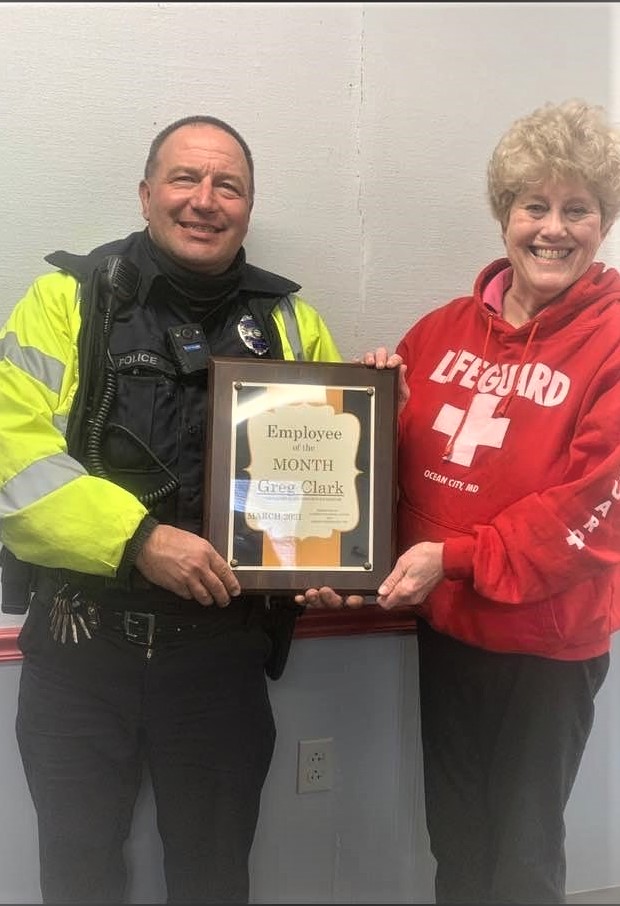Police Department
If you have an EMERGENCY, please call 911!
For all NON-EMERGENCY inquiries, please call the City’s Police Department on 740-695-0123.
Keys for Safety
St. Clairsville Police Dept. is implementing a new “Keys for Safety” Program for our City’s Senior & Disabled residents. This program allows senior/disabled residents to provide a spare key to their homes in case of emergency. If residents or caregivers want more information call Tonya at the Police Dept., 740-695-6629. or email thutchison@stclairsville.com.

Tornado Siren Testing Schedule
Testing will be the first Monday of every month at 12:00 PM for the duration of 1 minute.
Drug Drop Off Notice:
The intention of this service is to dispose of dangerous prescribed chemicals or narcotics that may cause harm if accidentally ingested or put into nature. Over the counter items such as Aspirin, Vitamins, Cold and Flu medications, and the like can be disposed on your own. We are happy to assist the community with disposing of dangerous drugs but are often overloaded with items that this program was not intended for. Our disposal sites will stop cooperating with us if we continue to bring them over the counter household items.
What to Do and Expect when Pulled Over by Police
Police officers are responsible for conducting traffic stops when they have reasonable suspicion of a traffic violation or a criminal violation. Being stopped by an officer can be a stressful experience for the driver, any passengers, and for the officer, too. Knowing what to do during the stop will help ensure your safety and the safety of others.
When you see emergency lights behind you, it is important for you and your passengers to stay calm and cooperate.
Remember to:
- Activate your turn signal and pull off or to the side of the roadway as soon as it is safe to do so.
- Turn off the engine and any audio devices.
- Stay in your vehicle unless directed by the officer to exit.
- Turn on your interior lights if you are pulled over at night to assist with visibility. Officers may use a spotlight for additional visibility.
- Keep your hands on the steering wheel or in a visible location so they are easily observable.
- Follow all instructions the officer gives you or your passengers.
The officer may approach either side of the vehicle. When the officer approaches the vehicle, remember to:
- Lower the corresponding window so you and the officer can better communicate.
- Let the officer know if you have a weapon in the vehicle upon first contact.
- Wait for the officer’s instructions before reaching for your driver’s license or vehicle documents.
When conducting the stop, the officer will typically:
- Show their law enforcement credentials if they are not in uniform. If they do not show their credentials, you may ask to see them.
- Explain why you were stopped/ask questions about your trip.
- Ask for your driver’s license, proof of insurance, and vehicle registration. If the documents are out of your reach, tell the officer where they are and wait for the officer’s acknowledgment before reaching to retrieve the documents.
In some cases, the officer may:
- Ask you to exit the vehicle. In this case, keep your hands visible, exit the vehicle, and stand in a location as directed by the officer.
- Impose a sanction such as a warning, traffic ticket which may include a fine, or arrest. The officer will typically explain whatever action is being taken. If they do not, you may ask them to do so.
If you have questions, respectfully ask the officer to clarify. If you disagree with the officer’s decision or course of action, do not prolong the contact by arguing with the officer. Rather, you may seek to contest the decision in court through established legal channels.
Your acceptance and signature on a traffic ticket is not an admission of guilt. However, the refusal to sign a traffic ticket may result in your arrest.
If you believe the officer acted inappropriately or have questions regarding their conduct, you may request to speak to a supervisor. This is best done as soon as possible after the stop.
Following these procedures can help make a traffic stop a safe experience for all parties involved.
This guidance was approved by the American Association of Motor Vehicle Administrators, by the International Association of Chiefs of Police and the National Organization of Black Law Enforcement Executives (Revised January 2021)

To contact the Police Department by email, select the email address below for the officer or staff you wish to reach. Please be sure to include a phone number(s) or other contact information within your email message if you wish to receive a response from the Police Department staff. Thank you.
| Title | Name | Phone Number | |
|---|---|---|---|
| Chief | Matthew Arbenz | 740-695-0123 | marbenz@stclairsville.com |
| Lieutenant | T. J. Stewart | 740-695-0123 | tjstewart@stclairsville.com |
| Officer | T. J. Weyand | 740-695-0123 | tweyand@stclairsville.com |
| Officer | Greg Clark | 740-695-0123 | gclark@stclairsville.com |
| Officer | Adam Porter | 740-695-0123 | aporter@stclairsville.com |
| Officer | Keven Yates | 740-695-0123 | kyates@stclairsville.com |
| Officer | Justin Work | 740-695-0123 | jwork@stclairsville.com |
| School Resource Officer | Michael Duplaga | 740-695-0123 | mduplaga@stclairsville.com |
| Officer | Andrew Gazdik | 740-695-0123 | agazdik@stclairsville.com |
| Officer | Michael Wheeler | 740-695-0123 | mwheeler@stclairsville.com |
| Officer (part-time) | Andrew Klotz | 740-695-0123 | aklotz@stclairsville.com |
| Officer (part-time) | Kirstin Work | 740-695-0123 | kwork@stclairsville.com |
| Administrative Asst. / Office Manager | Tonya Hutchison | 740-695-0123 | thutchison@stclairsville.com |